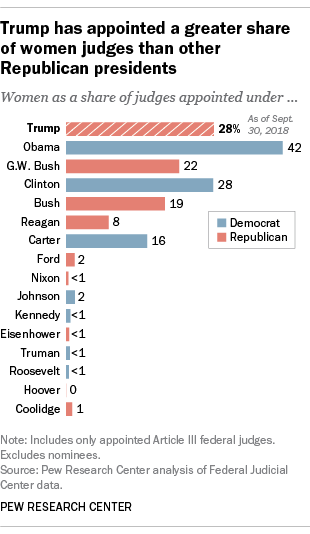Lawsuits against Trump-appointed judges have become a focal point of legal discourse in recent years. These cases highlight the ongoing tension between judicial independence and political influence. The judiciary, traditionally seen as an impartial branch of government, has faced unprecedented scrutiny and challenges under the Trump administration. As lawsuits mount, they underscore broader concerns about the integrity and impartiality of the judiciary.
This article delves into the complexities surrounding these lawsuits, examining the implications for both the legal system and democratic governance. By exploring specific instances where Trump-appointed judges have been targeted, we aim to provide a comprehensive understanding of the current landscape. This analysis is crucial for anyone interested in the evolving relationship between politics and the judiciary.
Trump's Judicial Campaign: A National Perspective
President Trump's focus on the judiciary extends beyond individual cases, reaching a national scale. In 2023, he voiced his discontent with district judges issuing nationwide orders, suggesting that the Supreme Court should intervene to fix this practice. This statement reflects a broader strategy aimed at reshaping judicial norms and practices across the country.
Trump's approach to the judiciary has often been characterized by direct criticism and calls for reform. His social media posts frequently highlight perceived injustices within the legal system, urging higher courts to address these issues. This national campaign underscores the president's commitment to influencing judicial decisions and procedures.
The implications of such a campaign are significant, as it challenges the traditional role of district judges in shaping national policy. By questioning their authority to issue broad rulings, Trump seeks to limit their impact on federal law, thereby reinforcing his vision of judicial power.
EEOC Litigation and Administrative Actions
In another instance, the Equal Employment Opportunity Commission (EEOC) took Tesla to court over allegations of racial harassment and retaliation. This lawsuit exemplifies the broader efforts by regulatory bodies to hold corporations accountable for workplace misconduct. Such actions align with the EEOC's mission to promote equal opportunity and justice in the workplace.
Additionally, the Department of Labor Inspector General faced controversy during the Trump administration due to alleged unlawful termination. This event highlights the potential for political interference in administrative roles, raising questions about the protection of whistleblowers and independent oversight.
These cases demonstrate the intersection of legal action and administrative policy under the Trump administration. They illustrate the challenges faced by agencies tasked with enforcing labor laws and protecting workers' rights amidst shifting political priorities.
Judicial Orders and Executive Actions
A federal judge issued a temporary restraining order in February, halting an executive freeze while evaluating its legality. This decision exemplifies the judiciary's role in balancing executive power and ensuring compliance with constitutional principles. It also showcases the intricate relationship between judicial rulings and executive actions.
Rep. Omar has been vocal in her opposition to certain Trump executive orders, advocating for measures to counteract perceived overreach. Her efforts reflect a broader pushback against policies deemed detrimental to civil liberties and democratic values. This dynamic underscores the importance of legislative oversight in maintaining checks and balances.
By examining these interactions, we gain insight into the complex interplay between branches of government. The judiciary serves as a critical safeguard against excessive executive authority, highlighting the necessity of an independent legal system.
Executive Orders and Legal Profession
President Trump's actions extended to the legal profession, targeting law firms associated with litigation or investigations against him and his allies. By blacklisting these firms from federal contracts and restricting access to federal buildings, Trump sought to exert control over the legal community. This move raised concerns about the chilling effect on legal representation and advocacy.
The rationale behind these executive orders was to punish perceived adversaries within the legal field. However, critics argue that such measures undermine the principle of free legal representation and the right to counsel. The backlash from legal professionals and advocacy groups underscores the significance of defending professional independence.
This episode reveals the potential for executive actions to influence the legal landscape, impacting not only individual firms but also the broader legal ecosystem. It emphasizes the need for vigilance in protecting the integrity of the legal profession.
Assignments and Judicial Criticism
U.S. District Judge James Boasberg was assigned to a lawsuit involving watchdog group American Oversight, which challenged Defense Department practices. This assignment placed Boasberg at the center of controversy, drawing criticism from President Trump himself. Such public critiques highlight the vulnerability of judges to political pressure and public scrutiny.
Boasberg's handling of various cases, including those related to January 6th events, further illustrates the complexity of judicial assignments. His decisions, often favoring lighter sentences than requested, sparked debate about sentencing guidelines and judicial discretion. This dialogue is essential for understanding the nuances of judicial responsibility.
The assignment of sensitive cases to specific judges can lead to heightened scrutiny and criticism. In this context, maintaining judicial impartiality becomes paramount, as it ensures fair adjudication regardless of external pressures or biases.
Intimidation and Judicial Independence
Threats against judges involved in Trump-related cases have reached unprecedented levels, posing a serious threat to judicial independence. New York Justice Arthur, assigned to Special Counsel Jack Smith's case against Trump, exemplifies the challenges faced by jurists in high-profile matters. These threats often stem from inflammatory rhetoric perpetuated by political figures.
The rise in intimidation tactics coincides with Trump's frequent attacks on judges, labeling them as corrupt or biased. Such rhetoric can embolden individuals to target judges, undermining the foundational principles of an impartial judiciary. The long-term consequences of such behavior could erode public trust in the legal system.
Efforts to protect judicial independence are vital in preserving the rule of law. By fostering an environment where judges can make decisions without fear of retribution, we uphold the integrity of our legal institutions. This commitment is essential for sustaining democracy and ensuring justice for all citizens.

